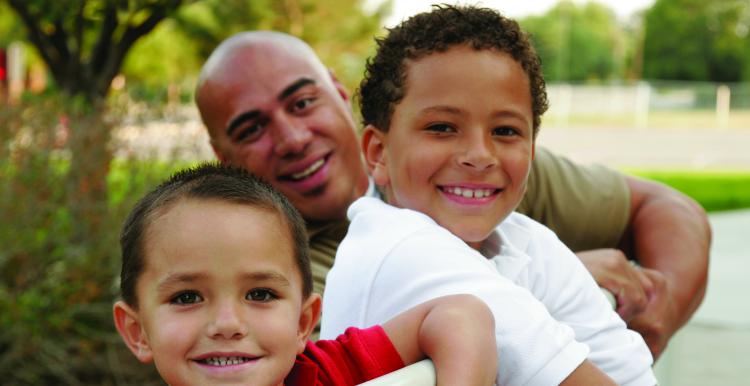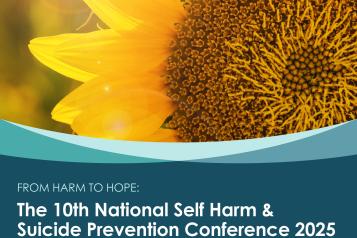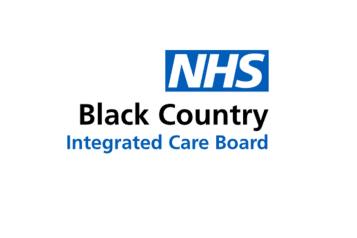Flu vaccinations for children to start
Children in the Black Country will be offered a free NHS flu vaccine from September.
Flu is caused by the influenza virus; as well as being highly infectious, the virus can cause serious illnesses in children, such as sepsis and pneumonia. Last year, 6,000 children aged five and under in England ended up in hospital because of flu.
The flu vaccine is safe and effective and reduces your child’s chance of needing hospital care for flu by around two thirds. This year, children have been prioritised to get the flu vaccine from 1 September to protect them and help stop the virus spreading to others.
This includes:
• children aged six months to two years with an eligible long-term health condition
• children aged two to five years and not yet at school (children must be aged two years or above on 1 September 2023 to be eligible)
• all primary and secondary school children.
School aged children will be able to get the flu vaccine at school through their school’s vaccination programme. Pupils will receive parental consent forms before vaccinations are scheduled to take place in their school. Children aged two and three years, as well as those with long-term health conditions, will be able to get their flu vaccine at their GP practice.
Dr Fiona Rose, local GP and Clinical Director for Quality and Safety for the NHS Black Country Integrated Care Board, said: “Flu can be an unpleasant illness for children and sometimes causes serious complications. The good news is that vaccination greatly reduces the risk and protects the vaccinated person and those around them.
“Children can catch and spread flu easily so vaccinating them also protects others who are vulnerable such as babies and older people. Most children will receive the vaccine through a nasal spray into each nostril. It is quick and painless and is the best available protection against flu. “The vaccine reduces your chances of getting flu in the first place and also reduces the risks associated with flu. If your child were to get the flu, it's also much milder and they will recover much more quickly.”
If your child is aged between six months and two years and is in a high-risk group for flu, they’ll be offered a flu vaccine injection instead of the nasal spray. This is because the nasal spray is not licensed for children under two years. Children aged two to 17 years may also have the flu vaccine injection if the nasal spray vaccine is not suitable for them.
Flu is caused by the influenza virus; as well as being highly infectious, the virus can cause serious illnesses in children, such as sepsis and pneumonia. Last year, 6,000 children aged five and under in England ended up in hospital because of flu.
The flu vaccine is safe and effective and reduces your child’s chance of needing hospital care for flu by around two thirds. This year, children have been prioritised to get the flu vaccine from 1 September to protect them and help stop the virus spreading to others.
This includes:
• children aged six months to two years with an eligible long-term health condition
• children aged two to five years and not yet at school (children must be aged two years or above on 1 September 2023 to be eligible)
• all primary and secondary school children.
School aged children will be able to get the flu vaccine at school through their school’s vaccination programme. Pupils will receive parental consent forms before vaccinations are scheduled to take place in their school. Children aged two and three years, as well as those with long-term health conditions, will be able to get their flu vaccine at their GP practice.
Dr Fiona Rose, local GP and Clinical Director for Quality and Safety for the NHS Black Country Integrated Care Board, said: “Flu can be an unpleasant illness for children and sometimes causes serious complications. The good news is that vaccination greatly reduces the risk and protects the vaccinated person and those around them.
“Children can catch and spread flu easily so vaccinating them also protects others who are vulnerable such as babies and older people. Most children will receive the vaccine through a nasal spray into each nostril. It is quick and painless and is the best available protection against flu. “The vaccine reduces your chances of getting flu in the first place and also reduces the risks associated with flu. If your child were to get the flu, it's also much milder and they will recover much more quickly.”
If your child is aged between six months and two years and is in a high-risk group for flu, they’ll be offered a flu vaccine injection instead of the nasal spray. This is because the nasal spray is not licensed for children under two years. Children aged two to 17 years may also have the flu vaccine injection if the nasal spray vaccine is not suitable for them.

For more information on the flu vaccination for children, visit the NHS website Click Here


